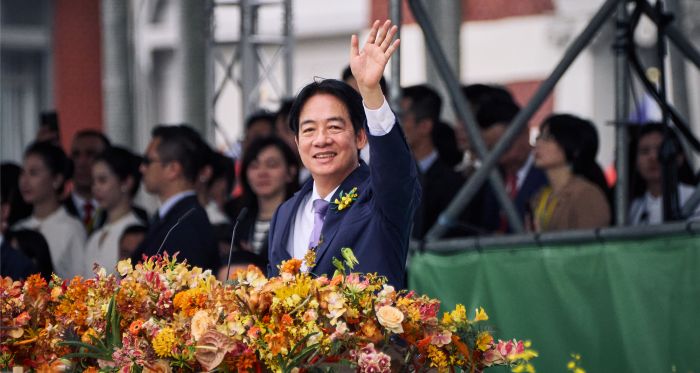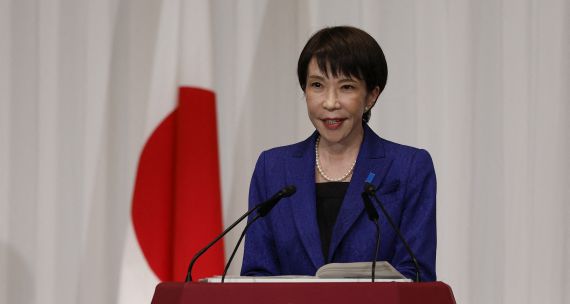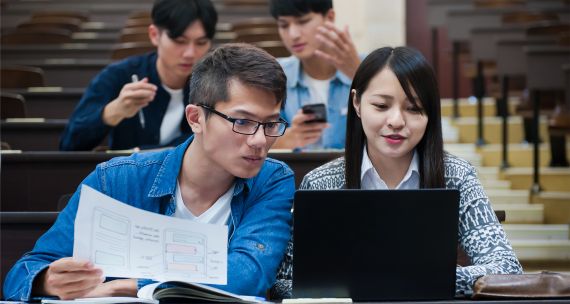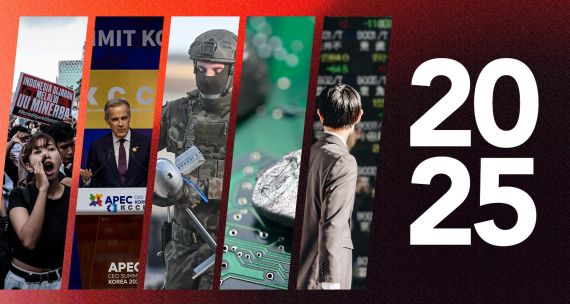The Takeaway
Lai Ching-te was sworn in as Taiwan's president on May 20, following an unprecedented third consecutive electoral victory for his Democratic Progressive Party (DPP) in January. In his inauguration speech, Lai affirmed that he would maintain a Taiwan identity distinct from China's and signalled his intent to preserve stability across the Taiwan Strait while fortifying ties with democratic allies.
On May 23, China conducted military drills around the island, describing them as “strong punishment” for Lai’s rhetoric and warning “external forces” against “interference and provocation.” Lai, whose party holds a minority in Taiwan’s Legislative Yuan, faces an increasingly fractious legislature. The opposition, a de facto coalition of the Kuomintang (KMT) and Taiwan People’s Party (TPP), has tried to ram through legislation that would constrict presidential power, hamstringing Lai's ability to implement his policies.
In Brief
- In his inauguration address, Lai cast cross-strait relations as a matter of international concern. Beijing, which sees the relationship as an internal matter, opposed this framing. While pledging to maintain the “status quo” with China, Lai urged Beijing to ease global fears of war by ceasing its political and military intimidation of Taiwan and "choosing dialogue over confrontation."
- Lai also vowed to bolster the island's defences, deepen trade partnerships with other democracies, and develop key sectors, such as artificial intelligence (AI), semiconductors, security and surveillance, and next-generation communications, to preserve Taiwan’s pivotal role in the global supply chain.
- International guests attended Lai’s swearing-in ceremony, including former U.S. officials; lawmakers from Canada, Japan, and Germany; and leaders of the 12 countries with which Taiwan maintains formal diplomatic relations.
- The 11-member Canadian delegation was headed by Liberal MP Judy Sgro. Lai received the delegation and expressed his hopes that Canada, currently chair of the Commission of the Comprehensive and Progressive Agreement for Trans-Pacific Partnership (CPTPP), would support Taiwan’s application to join the trade deal.
- On cross-strait and foreign relations, Lai will continue Tsai’s “steadfast diplomacy" of cultivating Taiwan's non-official relationships and strengthening economic ties with Western democracies based on shared democratic values, while also trying to carefully manage relations with Beijing. This continuity is evidenced in Lai's retention of key officials like former foreign minister Joseph Wu, who is now heading Taiwan's National Security Council.
Implications
- A thaw in cross-strait tensions is unlikely. Beijing has long perceived the DPP as a separatist party that rejects its "one-China" principle. It also considers Lai an “independence worker.” Compared to his predecessor, Lai's inaugural address struck a more assertive chord on Taiwan’s sovereignty, referring to Beijing as "China,” a term that Tsai avoided in favour of “the other side of the Strait” or “the Beijing authorities.” Lai also omitted any reference to the "1992 Consensus," an understanding between Beijing and the then-ruling KMT that there is only one China, with each side permitted its own interpretation. Beijing regards adherence to the 1992 Consensus as a prerequisite for cross-strait dialogue. It severed high-level official engagement with Taipei after Tsai became president in 2016.
- Lai faces strong legislative headwinds. Since the current parliamentary session commenced in February, opposition parties have blocked at least 15 motions from the DPP, including a proposed amendment requiring legislators to obtain government approval before travelling to China. Tensions boiled over on May 17, when a brawl erupted in the chamber after the opposition tried to bypass standard review procedures to push through a reform package granting parliament greater power. Such legislative gridlock could significantly constrain Lai's ability to enact policy, including on national defence and cross-strait relations.
- Lai will aim to bolster ties with key partners, especially the U.S. and Japan. The U.S. has already signalled its support for Lai. U.S. President Joe Biden dispatched an unofficial delegation that included Richard Armitage, former deputy secretary of state, to attend the inauguration. The delegation reassured Lai that the U.S. commitment to Taiwan is "deep and not changing.” U.S. Secretary of State Antony Blinken also congratulated Lai, promising ongoing collaboration on shared priorities.
Japan also conveyed its strong support by sending its largest-ever delegation to Lai’s inauguration. Led by lawmakers from the ruling Liberal Democratic Party, the delegation advocated for deeper co-operation with Taiwan. This included calls for trilateral security talks with the U.S., support for Taiwan's membership in the World Health Organization, and backing its bid to join the CPTPP.
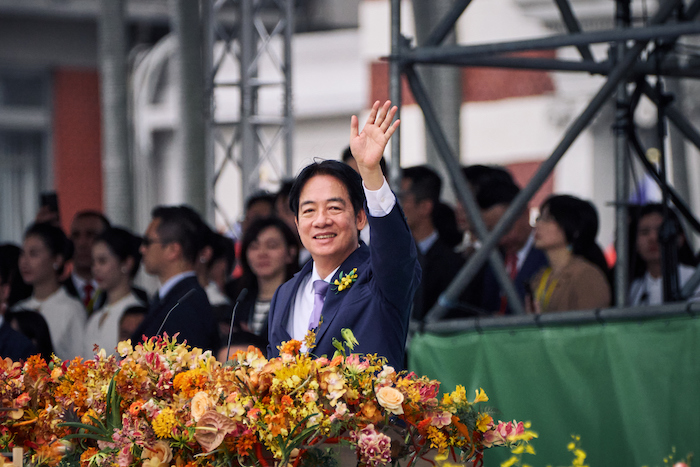
What's Next
1. Parliamentary divisions risk widespread turmoil
Mass demonstrations shook Taipei on May 21, with tens of thousands of citizens flooding the streets outside parliament to protest controversial legislation by the KMT and TPP. Critics accuse the opposition-controlled legislature of undermining Taiwan’s democratic norms.
The opposition has so far ignored the public pushback, fast-tracking its preferred legislative procedures and advancing other controversial bills for a second reading. The KMT defended its actions, stating that “reform [of parliament] is inevitable.”
2. Deepening Canada-Taiwan co-operation
Two goals specifically highlighted by Lai — achieving net-zero emissions and transforming the island into an AI powerhouse — are promising avenues for enhanced co-operation with Canada. Canada's burgeoning expertise in AI, particularly in R&D, aligns with Taiwan's hardware manufacturing capabilities. Taiwan can also leverage Canada's cleantech leadership, including on green hydrogen.
• Edited by: Vina Nadjibulla, Xiaoting (Maya) Liu, Erin Williams, and Ted Fraser. Design: Chloe Fenemore. Image: An Rong Xu/Bloomberg via Getty Images
